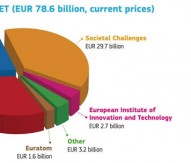
‘Twinning’ grants to close RDI gap within EU
Research institutions from Portugal, Luxembourg, and countries that joined the EU in 2004, 2007, and 2013 can now benefit from a new package of EU grants particularly intended to foster knowledge transfer from leading European research centres. Around €64m is available for this first lot of ‘twinning’ grants published under Horizon 2020.
Twinning is a new action under the Spreading Excellence and Widening Participation activity of Horizon 2020. It aims at building upon the huge potential of networking for excellence through knowledge transfer and exchange of best practices between research institutions and leading partners.
The main aim of twinning is to strengthen a field of research in a particular knowledge institution and to reduce the disparities across Europe in research and innovation performance by creating a link between their institution and at least two leading international research institutions in other member states. Driven by the pursuit for excellence, research intensive institutions tend to collaborate increasingly in closed groups.
Potential applicants should clearly outline the scientific strategy for stepping up and stimulating scientific excellence and innovation capacity in a defined area of research, as well as the scientific quality of the partners involved in the twinning exercise. €1m will be the maximum grant available per proposal, for a duration of three years. Funding will be available for expert visits, short term on-site or virtual training, workshops and conference attendance, organisation of joint summer school activities, and outreach activities. Equipment and researchers’ salaries will not be covered by the grant.
The co-ordinator must be from an organisation in the EU13 (those countries joining after 2004), Luxembourg or Portugal, and the proposal needs to include at least two additional leading institutions from two different member states and/or associated countries.
The call deadline is 2 December 2014, but it is likely to be extended.





